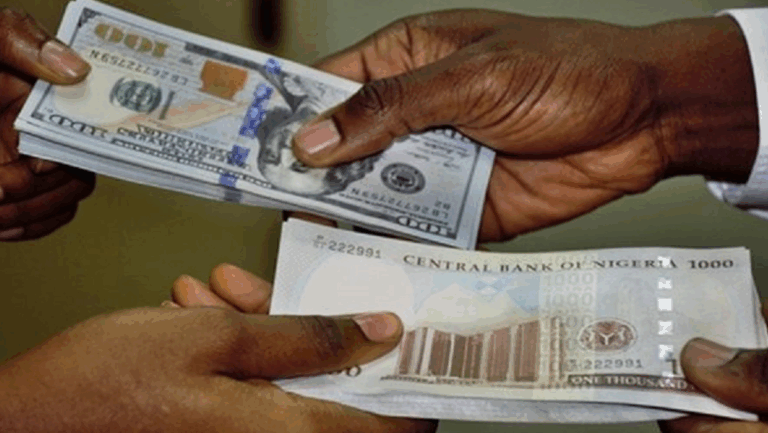The Nigerian Naira lost ground against major foreign currencies on Friday, June 13, as it depreciated by ₦11.89 or 0.77% against the US Dollar in the Nigerian Autonomous Foreign Exchange Market (NAFEM), closing at ₦1,551.85/$1, down from ₦1,539.96/$1 in the previous session. This marks the first decline in the official exchange rate after a streak of relative stability.
The depreciation follows the Central Bank of Nigeria’s (CBN) intervention, where it reportedly injected $580 million into the market in May to stabilize the currency amid forex inflows from exporters and international oil companies. These inflows had initially supported the Naira, but the latest dip suggests mounting pressure on the local currency.
The Naira also slid sharply against other major currencies:
-
Pound Sterling: Fell by ₦16.28 to close at ₦2,100.30/£1, compared to ₦2,084.02/£1 on Wednesday.
-
Euro: Dropped by ₦21.58, settling at ₦1,788.26/€1, down from ₦1,766.68/€1.
Meanwhile, in the parallel (black) market, the Naira remained unchanged, closing at ₦1,610/$1, reflecting minimal movement despite the official market’s volatility.
Cryptocurrency Market Rebounds Despite Geopolitical Fears
In contrast to the forex market, the cryptocurrency sector saw mild bullish activity, with major coins posting gains despite ongoing geopolitical tensions, particularly fears over fresh airstrikes between Israel and Iran.
Top Performers:
-
Litecoin (LTC): +3.1%, trading at $86.48
-
Ripple (XRP): +1.9%, at $2.16
-
Dogecoin (DOGE): +1.5%, at $0.1769
-
Solana (SOL): +0.9%, at $146.43
-
Ethereum (ETH): +0.5%, at $2,541.25
-
Bitcoin (BTC): +0.4%, at $105,155.54
-
Cardano (ADA): +0.3%, at $0.6377
Lagging:
-
Binance Coin (BNB): Lost 0.3%, trading at $652.30
Stablecoins like USDT and USDC held steady at $1.00, maintaining parity with the US Dollar.
While digital assets showed resilience, analysts expect investors to remain cautious heading into the weekend due to ongoing global conflict risks, which could spur further market volatility.
Outlook
The CBN’s continued intervention hints at efforts to anchor the Naira, but without stronger forex inflows or broader reforms, the currency may remain vulnerable. Simultaneously, crypto markets are showing early signs of recovery, albeit under the shadow of global uncertainties.

